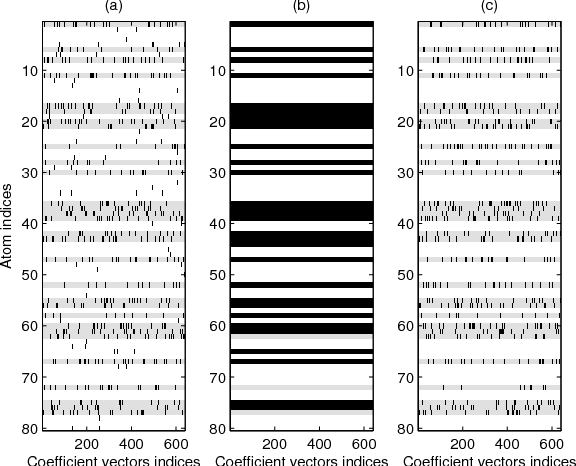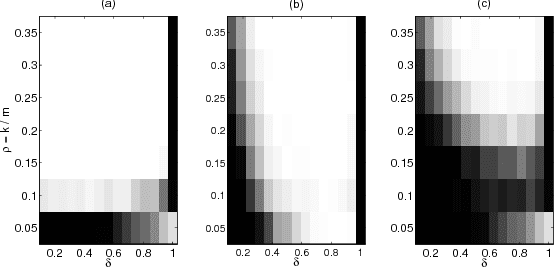Dictionary Subselection Using an Overcomplete Joint Sparsity Model
Paper and Code
Jun 10, 2013



Many natural signals exhibit a sparse representation, whenever a suitable describing model is given. Here, a linear generative model is considered, where many sparsity-based signal processing techniques rely on such a simplified model. As this model is often unknown for many classes of the signals, we need to select such a model based on the domain knowledge or using some exemplar signals. This paper presents a new exemplar based approach for the linear model (called the dictionary) selection, for such sparse inverse problems. The problem of dictionary selection, which has also been called the dictionary learning in this setting, is first reformulated as a joint sparsity model. The joint sparsity model here differs from the standard joint sparsity model as it considers an overcompleteness in the representation of each signal, within the range of selected subspaces. The new dictionary selection paradigm is examined with some synthetic and realistic simulations.
 Add to Chrome
Add to Chrome Add to Firefox
Add to Firefox Add to Edge
Add to Edge